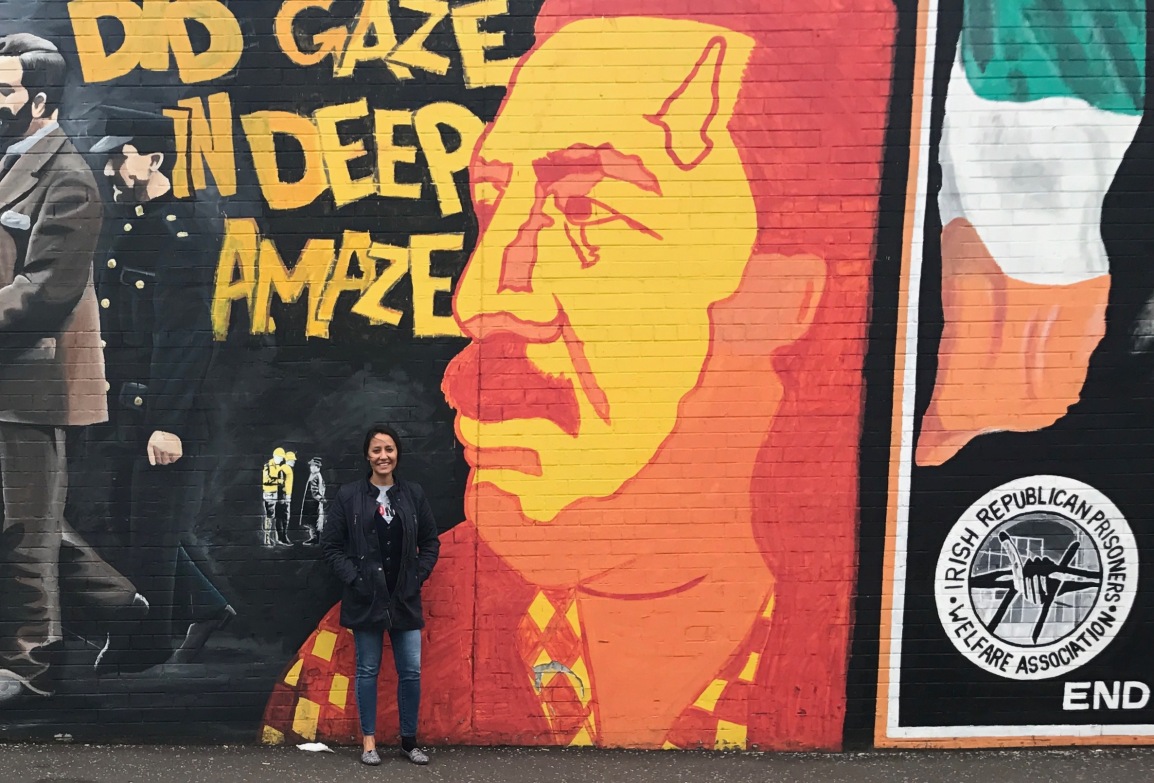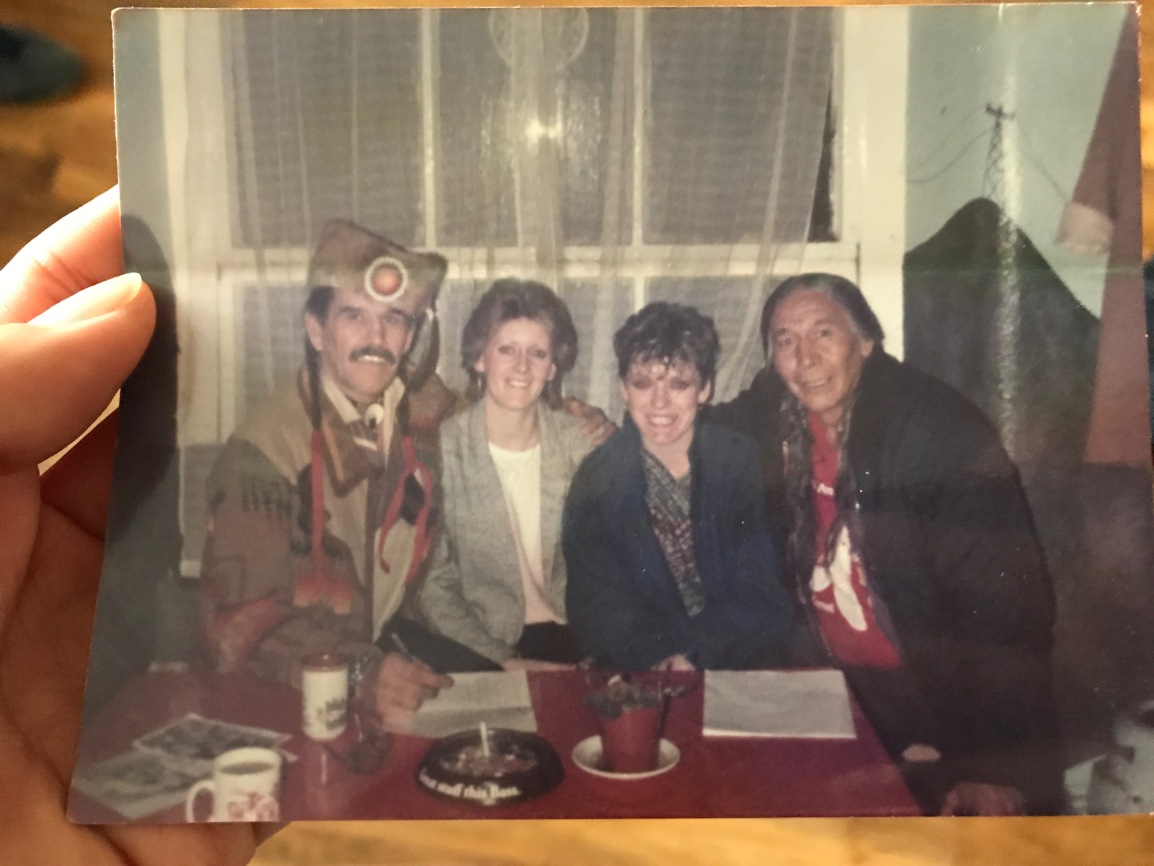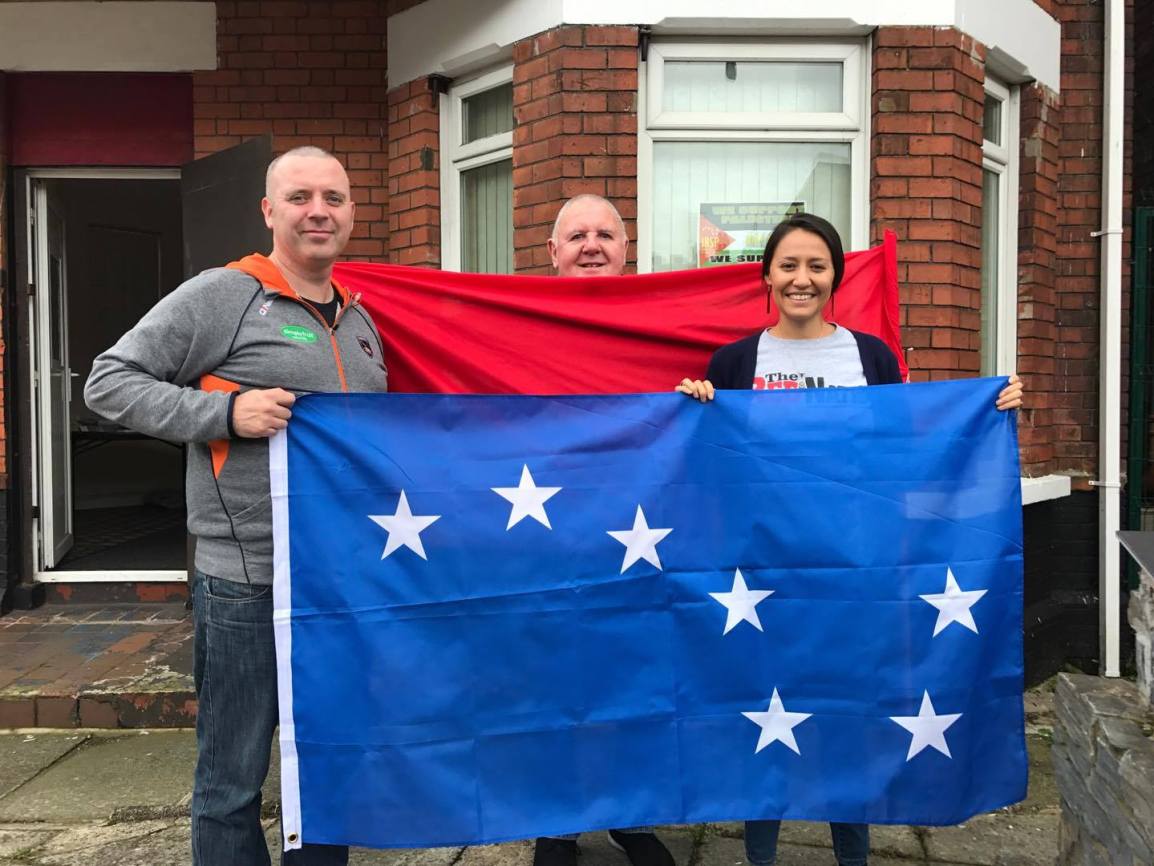
This talk was delivered at the Royal Geographical Society’s International Conference in London, England, August 28, 2017
Good evening. I want to thank the coordinating committee for this conference, as well as the Decolonizing Water project housed at the University of British Columbia, for inviting me to speak tonight. I’m honored to be in the company of fellow Indigenous colleagues from Turtle Island. I want to start my remarks tonight by acknowledging their contributions to the decolonization of Indigenous land and life from colonial occupation by the settler states of the United States and Canada. I acknowledge you as my relatives, as shik’é, who are part of this long struggle our people have been engaged in for the last 500 years to protect and defend our relatives from the genocide and elimination of Indigenous life that the US and Canada have always sought. To name and recognize one’s relatives in this manner is a Diné practice that extends from an understanding that one’s relatives are not limited solely to human beings. Rather, to recognize relatives is to recognize, acknowledge, and reinforce one’s relations with our other-than-human relatives, including the earth, the water, and the animals. I thus also want to extend recognition to Nahadzáán Shimá, Mother Earth, in this place and space where we are gathered today. Some call it London or England, but from a Diné perspective these lands and waters are part of the vast network of relatives that comprise, simply, life. And whatever we describe as decolonization is about ensuring that our relatives have a balanced, full, and good life. So this is how I introduce myself this evening as a relative visiting and remembering the lands and waters of this place that has been so profoundly shaped by the imperial project of Great Britain.
The theme of this conference and of this plenary is “decolonizing geographies.” I must provide you with a disclaimer here: I am not a geographer by training and I’m not terribly well versed in the debates within the field that have given rise to a perceived need to “decolonize knowledge” within geography. So I’m a bit of a dilettante here. I do, however, have a deep understanding of the term “decolonization” and its many genealogies within the radical political traditions that colonized peoples throughout the world have forged in an effort to cast off the shackles of imperial and colonial control. Of course, decolonization as a concept and a material formation only came into existence because of colonization, which is an ongoing, directed effort to exploit and dispossess, eliminate and extract, in the name of two aspirational hallmarks of modernity: liberalism and capitalism. So I think in order to talk about what it means to “decolonize geography” we must first talk about colonization and the historical fact that liberalism and capitalism could not (and cannot) have gained power of the kind we now live under without the violent colonization of many peoples, and without the settler invasion of Indigenous lands in North America, specifically.
There is no better way to understand colonization and its foundational relationship with liberalism and capitalism than to turn to the political and intellectual traditions of colonized peoples, who, out of sheer necessity to survive, have been working through these connections since liberalism first touched their lands and communities in the sixteenth century. In order to elaborate on this point, I want to share an anecdote. I recently traveled to Belfast, which as many here know is the epicenter of the contemporary Irish movement to decolonize their homelands from British colonial and imperial occupation. During my brief time there, I learned of the long histories of solidarity between the colonized peoples of Turtle Island and the colonized peoples of Ireland. I was reminded that during the great Irish famine, the Choctaw Nation in 1847 aided the Irish people in a spirit of solidarity even whilst undergoing one of the most infamous genocidal campaigns in history, The Trail of Tears. I was shown photographs of Clyde Bellecourt and Floyd Red Crow Westerman, two important figures from the famed American Indian Movement, taken during their trip to Belfast in the mid 1980s [see below]. I was told a story of how Clyde Bellecourt offered a Lakota dance of honor at the grave of Bobby Sands, one of the young Irish freedom fighters who gave his life during the 1981 prisoners’ hunger strike. I was told by countless people how closely they followed the #NoDAPL movement in Standing Rock in 2016 and 2017, and that the Starry Plough flag–an emblem of Irish freedom–was flown alongside the hundreds of other flags from independent nations that professed international solidarity with the Oceti Sakowin, or the Great Sioux Nation, at the camps situated at the frontlines of the #NoDAPL struggle in Oceti Sakowin territory.

These stories were not relayed in the context of academic exchange. Nor were they sanctioned by institutions of the state that, quite to the contrary, seek to repress, divide, and disconnect the powerful relationality that exists between and amongst colonized peoples of the world. Rather, these stories were relayed in the context of easy conversation between myself and my Irish comrades; in the reigniting of a relationality based on a deep, historical desire for liberation from the shackles of colonization by two of the most destructive empires in world history: Great Britain and the United States. And there was an unequivocal, mutual understanding that at the center of this shared dream of liberation is the basic freedom to exercise self-determination over our own destinies. This is why in the histories of various decolonial struggles, whether these be in Algeria, Ireland, Palestine, or Turtle Island, decolonization has always been framed as a struggle for national liberation; for the freedom to exercise self-determination and autonomy that continues to be denied to our peoples by the nonconsensual interference of empire. Anyone familiar with the intellectual and political genealogy of American Indian Studies, for example, knows well that aspirations for nationhood and self-determination have always been at the center of our struggles for decolonization writ large, and the development of American Indian Studies as an academic field more specifically.
But the struggle for self-determination that unites colonized peoples isn’t premised alone on the colonial or the imperial question. As I note earlier, what we understand as liberalism and capitalism could not have come into existence without the invention of particular forms of colonialism. The United States was the first–and still one of the most powerful–liberal capitalist nation states in history, and its ability to achieve such a remarkable monopoly of power has depended entirely on its commitment to suppress, conceal, deny, reproduce, and trivialize the historical and material fact of its colonization of Indigenous peoples.[1] This colonization, lest we forget, was and continues to be a colonization-by-design that bolsters the US national imaginary. It is a type of colonization that many scholars now refer to as settler colonialism. Settler colonialism aims to destroy pre-existing peoples, nations, laws, political orders, economies, and cultures, in order to replace these with a permanent society and national territory–in this case, the United States–upon which the liberal dreams of democracy and free enterprise (i.e. capitalism) can be allowed to flourish. The case of US history teaches us that settler colonialism is foundational to liberalism and capitalism because it is at the root of the very existence of the United States. Scholars of racial capitalism and intersectionality, as well as revolutionary intellectuals engaged in national liberation struggles throughout history, have always demanded that our conception of decolonization must be premised on a clear intersectional understanding of the indissoluble relationality between settler colonialism, liberalism and capitalism.
Given these two frameworks of relationality–the shared desire for national liberation of colonized peoples, and the mutually reinforcing structures of settler colonialism, liberalism, and capitalism that have forged the shackles of domination and misery that we must free ourselves from, what is decolonization? Well, decolonization, in its fullest expression, is a future beyond capitalism and beyond the liberal nation-state. Decolonization is a future-oriented project that requires imagining, building, and fighting for forms of nationhood and self-determination not premised on the relations of exploitation, dispossession, elimination, and extraction that define liberal nationalisms and capitalist, imperial, and colonial formations. Decolonization requires forms of nationhood and self-determination based on relationality of a different kind; one akin to the Diné ethos of relationality I invoked at the beginning of my talk.
But, simply invoking this ethos of relationality is, I argue, simply not enough. For so long as the colonized peoples of the world struggle for decolonization, so too must our intellectual practice aim to advance and support these struggles. Indeed, relationality only matters if it is born of a strident commitment to the actual, difficult, revolutionary work of decolonization that colonized peoples have been undertaking for hundreds of years. Like relationality, a knowledge that can be called “decolonial” does not emerge from academic production and consumption. Rather, the intellectual and political traditions of colonized peoples show us that knowledge is produced through struggle. In sum, as Oceti Sakowin scholar and freedom fighter Nick Estes has argued, it is not how a politics of decolonization can inform our knowledge, but how the knowledge we produce can inform the actual, historical, and ongoing struggle for decolonization across the world. Ahe’hee. Thank you.

Notes:
[1] What I meant to say here: The United States was the first nation born entirely as a fully formed liberal-capitalist state.
Subscribe: